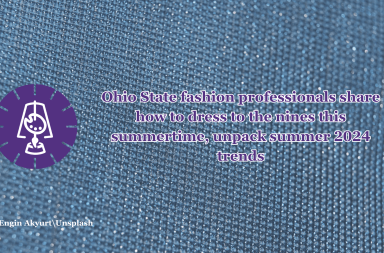
Kellyn McNally, a first-year in microbiology, reads from her laptop inside Morrison Tower on March 25. Credit: Jon McAllister / Photo Editor
Sarah Owens, a second-year in exploration, said that, as a first-generation college student, First Year Experience services made her first year at Ohio State a success.
“I felt more comfortable after knowing about the many resources available on campus,” Owens said of her orientation experience. “It definitely made me feel at ease to be able to speak to (the Office of) Financial Aid and an adviser to help me schedule my classes.”
As a first-generation college student, Owens is considered an “at-risk student,” s a student who, because of a variety of factors, might be less successful than their peers, said Bernie Savarese, director of First Year Experience, in an email.
“Some of the most common measures of, and common proxies for, success include whether or not a student returns for their second year, GPA, whether or not a student persists (in good academic standing) at the university and is able to make progress in his or her major or area of study, and whether or not a student graduates from the university,” he said. “First-generation college students are often less likely to be successful because they can lack the information, support and social capital that other students have access to.”
Students from a lower socio-economic background and students from underrepresented backgrounds are also considered at risk, Savarese added.
OSU’s retention rate, which is at 94 percent, is one of the highest retention rates compared with other colleges and the national average of 80 percent. Much of this success has to do with the programs in place for the at-risk student population, Savarese said.
OSU and FYE have various programs in place in order for at-risk students to get off to a strong start, Savarese said. These programs include the university’s two-day orientation, summer pre-enrollment programs, Welcome Week, first-year survey courses, first-year Success Series and Buckeye Book Community.
For FYE, the job begins in the summer with the two-day orientation program that takes place each June and July, Savarese said.
“We simply can’t wait until after the first semester to see which students struggled, or who ended up transferring and wonder what went wrong,” he said. “By connecting with students over the summer and using those relationships, coupled with what we already know about student success, we can reach them early and often during the first year to ensure they are making the necessary connections.”
Programs can only be part of the answer, though, especially when it comes to at-risk students, Savarese said.
“We know that we can play a larger role in students’ success if we focus on building relationships and being a trusted voice,” he said. “Students need to feel like the university truly understands where they are coming from and the struggles they are having.”
Using peer leaders is also an important part to students’ success.
“Peer leaders are students who know what it’s like to hit a few bumps in the road and what it takes to be successful. They are there to help students and deliver important messages, that will help us be more of a trusted voice,” Savarese said. “Students need to hear from and find support in other students.”
Students who are peer leaders, which is a paid university position, do a special outreach to populations based on research and experience. Peer leaders have the opportunity to not only be first-year student orientation leaders, but also reach out to various students and help them make the connections they need within the university.
Owens said she found that joining many different groups on campus allowed her to meet some of her peers and feel more comfortable on campus.
“I participated in a Second-year Transformational Experience (Program) fellowship this year and I found this group to be the most helpful for my transition into a large university,” she said. “It gave me a small group of people to meet with once a week and instantly gave me a mentor to answer any questions I had. This made me feel most comfortable on campus.”


